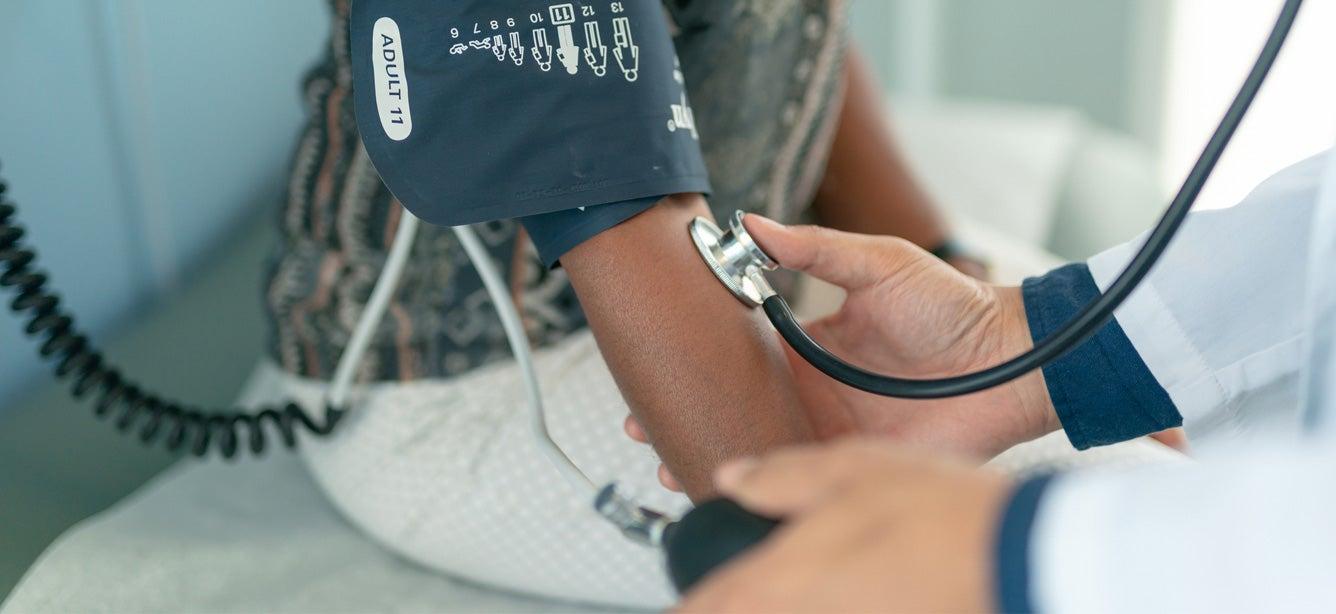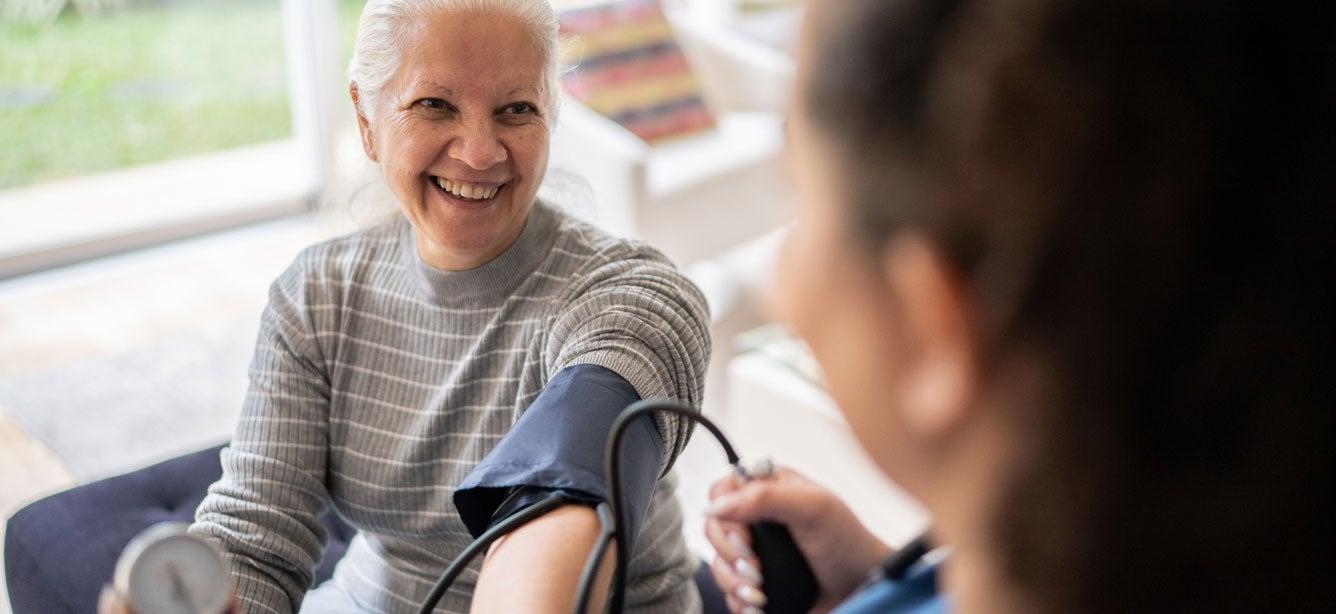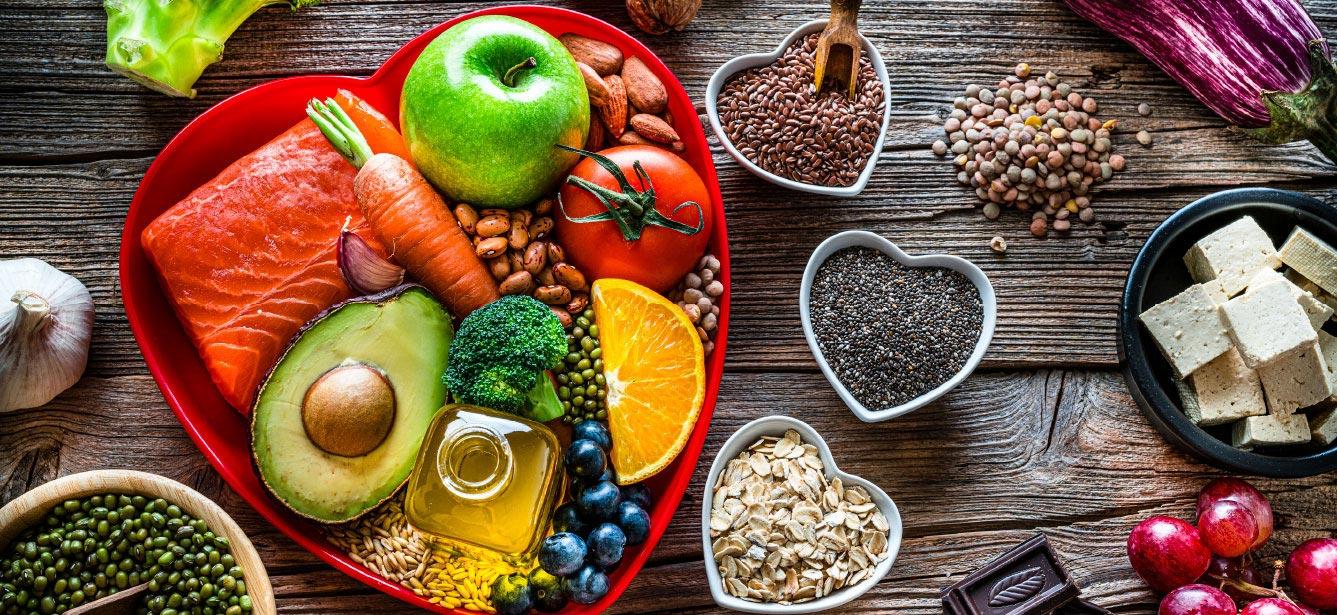
Related Topics
Hypertension, also known as high blood pressure or HBP, is one of the most common chronic diseases affecting older adults—and a major risk factor for heart disease and stroke. According to the National Health and Nutrition Examination Survey (NHANES), this condition impacts 70% of Americans age 65+.1
What is hypertension?
Hypertension is a medical condition that happens when your blood pressure—the force of the blood pushing against your artery walls—becomes too high. This increased pressure makes it harder for your heart to pump blood to your body. It’s normal for our blood pressure to rise and fall during the day. But a long period of continued high blood pressure can cause cardiovascular disease, kidney disease, and other serious health problems.
How is hypertension diagnosed?
It’s usually diagnosed through blood pressure screening—something that likely happens each time you visit your health care provider. A reading is taken by applying a cuff on your arm that tightens and then slowly loosens.
The unit used to measure blood pressure is called millimeters of mercury (mmHg). A reading has two numbers: the top number, which is the systolic pressure, and the bottom number, which is the diastolic pressure (e.g., 120/80 mmHg). Blood pressure levels are categorized according to this number. For most adults:
- Normal blood pressure is a systolic pressure of less than 120 and a diastolic pressure of less than 80.
- Elevated blood pressure is a systolic pressure of 120-129 with a diastolic pressure of less than 80.
- High blood pressure (hypertension) is a systolic pressure of 130 or higher, or a diastolic pressure of 80 or higher.
If your blood pressure reading is equal to or higher than 130/80 mmHg, your doctor may diagnose you with hypertension. This diagnosis is usually based on the average of at least two readings taken during different visits.
What are the causes of hypertension?
What is the main cause of hypertension? There are many factors that affect your blood pressure, including your hormone levels, the condition of your blood vessels and kidneys, and how much water and salt are in your body. You may be at greater risk for hypertension if you:
- Are African American
- Have a family history of HBP
- Have diabetes
- Are living with obesity
- Smoke, or drink alcohol excessively
- Consume a lot of salt
Men are more likely to develop high blood pressure before age 55, while women tend to experience it after menopause. You also have a higher chance of developing hypertension as you get older, since your blood vessel walls become stiffer with age.
Other possible causes of hypertension include medical conditions like chronic kidney disease and even certain medications (e.g., some corticosteroids). Other risk factors include genetics and stress. Most often, however, no single cause of hypertension is found. Hypertension with no definite cause is called essential hypertension.
What are the symptoms of hypertension?
High blood pressure is often called a "silent killer," and with good reason: Many who have it are often asymptomatic. That means people with dangerously high blood pressure often don't know there's anything wrong. Life-threatening hypertension (higher than 180/120 mmHg) may cause shortness of breath, nosebleeds, and headaches in some adults.
Most people discover they have hypertension during a doctor visit. That’s why routine blood pressure screenings are so vital for older adults.
What happens to a person with hypertension?
Preventing and controlling hypertension is critical to your heart and brain health. When left untreated, hypertension can damage your vital organs, leading to life-changing and life-threatening medical problems such as:
- Heart attack
- Stroke
- Heart disease
- Angina (chest pain)
- Kidney disease or failure
- Loss of vision
- Vascular dementia
- Aneurysms
- Sexual dysfunction
Early detection is the key to avoiding lasting complications from hypertension.
What is the most effective treatment for hypertension?
If you're diagnosed with high blood pressure, there's no reason to panic. The good news is this condition can often be managed with lifestyle changes that reflect the latest heart-health guidelines. Your doctor may tell you to:
- Lose weight (or maintain a healthy weight)
- Follow a nutrient-dense diet rich in fiber and potassium
- Stay hydrated by drinking water throughout the day
- Limit your alcohol intake to no more than one drink or less per day. If you drink alcohol, check with your doctor about what amount of alcohol is safe for you.
- Quit smoking tobacco (or don’t start smoking)
- Limit salt or sodium (2,300 mg or less daily – sodium content of most foods can be found on food labels)
- Exercise at least 30 minutes, 5 days a week (include a combination of aerobic activities, stretching, and strength building)
- Eat more foods with healthy fats, like salmon and avocado
- Manage stress through yoga, meditation, and other practices
- Get plenty of sleep (try for 7-9 hours each night)
To track your progress, your provider may have you monitor your blood pressure at home (possibly several times a day). Blood pressure monitors are available for purchase at most drugstores and online. Many pharmacies also have blood pressure machines that are free for you to use.
Hypertension does not always respond to lifestyle changes, however. In that case, your provider may prescribe blood pressure medication. The type and number of medicines you take will depend on your general health and how high your blood pressure numbers are. The first line of defense for treating hypertension is often diuretics, otherwise known as water pills. These work by removing excess sodium and water from the body.
Other drugs used to treat hypertension include angiotensin-converting enzyme (ACE) inhibitors, angiotensin II receptor blockers (ARBs), calcium channel blockers, and beta blockers.
Does Medicare cover high blood pressure treatment?
In general, Medicare Part B does cover a yearly cardiovascular risk reduction appointment if you see a participating provider. During this visit, the provider will check your blood pressure and recommend natural ways to prevent hypertension. Original Medicare will not pay for medications used to treat hypertension, but most high blood pressure medicines are covered under Medicare Part D (prescription drug coverage).
Medicare will cover an ambulatory blood pressure monitor once per year when ordered by a physician. This is usually advised if a doctor suspects that in-office blood pressure readings are inaccurate for a patient. Traditional cuff-style monitors are not covered by Medicare, except for patients undergoing dialysis at home.
How can you prevent high blood pressure naturally?
The best way to avoid the health hazards of hypertension is to prevent it altogether. This can be done by following the same heart-smart behaviors used to treat high blood pressure: eat right, exercise, maintain a healthy weight, manage stress, and avoid smoking and excessive alcohol use.
You should also get your blood pressure checked at least once a year—and more often if you have hypertension risk factors listed above or have had high numbers in the past. The earlier you and your doctor catch elevated readings, the more successful you’ll be in preventing hypertension and protecting your long-term health.
Source
1. Older Adults and Hypertension: Beyond the 2017 Guideline for Prevention, Detection, Evaluation, and Management of High Blood Pressure in Adults, American College of Cardiology. Found on the internet at https://www.acc.org/latest-in-cardiology/articles/2020/02/26/06/24/older-adults-and-hypertension#:~:text=Expert%20Analysis&text=Hypertension%20is%20one%20of%20the,%E2%89%A565%20years%20have%20hypertension.



